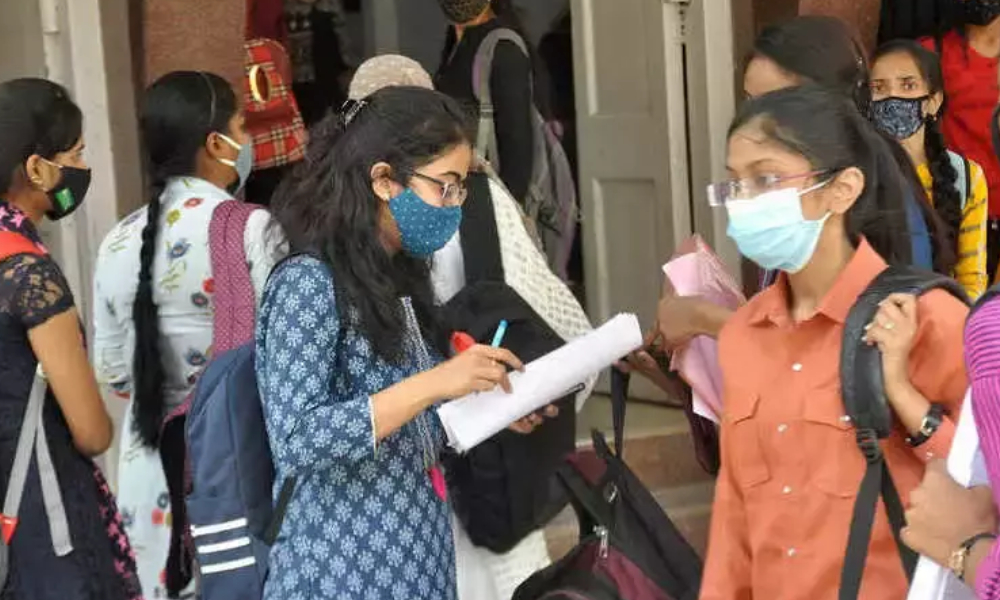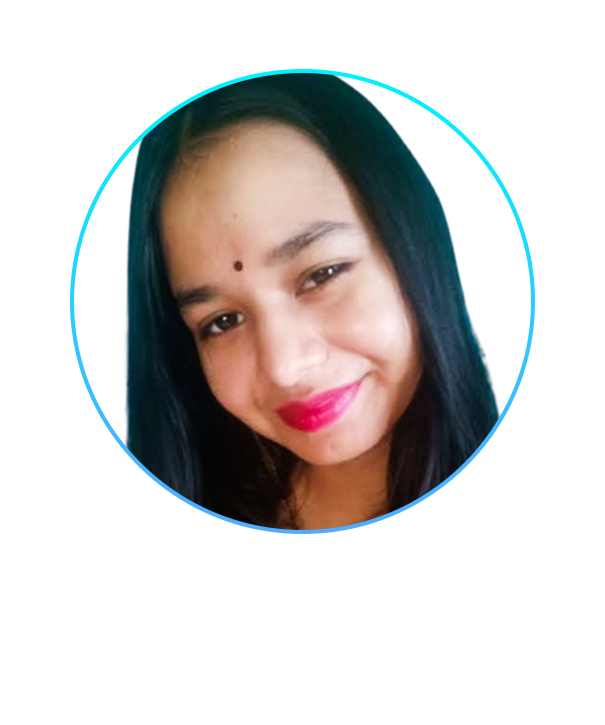
Image Credits: The Times Of India
Female Enrolment In Higher Education Escalated By 18%, Says Survey
Writer: Anchal Rana
I am a history enthusiast. I like star-gazing, mountains, reverie and my headspace. Unabashedly an anime lover. I don’t read but write poetry. Books are a relief. Curious to learn the unknown. Prefer the countryside and tea. Above all an aesthete.
India, 11 Jun 2021 1:23 PM GMT
Editor : Ankita Singh |
A literature lover who likes delving deeper into a wide range of societal issues and expresses her opinions about the same. Keeps looking for best-read recommendations while enjoying her coffee and tea.
Creatives : Anchal Rana
I am a history enthusiast. I like star-gazing, mountains, reverie and my headspace. Unabashedly an anime lover. I don’t read but write poetry. Books are a relief. Curious to learn the unknown. Prefer the countryside and tea. Above all an aesthete.
Female participation in master's programs in the arts, sciences, and commerce has drastically raised between 2015-16 and 2019-20. Female enrolment in professional and technical courses, on the other hand, is much lower.
Despite the fact that female students make up the smallest percentage of students in national institutions, female enrolment in higher education escalated by nearly 18% from 2015-16 to 2019-20.
Apart from increasing females enrolling in MPhil, postgraduate, and diploma programs, the All India Survey on Higher Education (AISHE) 2019-20 indicated that they continue to dominate in medical sciences, BA, and BSc programs. Female enrolment in professional and technical courses, on the other hand, is much lower.
Females have a Gross Enrolment Ratio of 27.3 per cent, which is higher than the boys' rate of 26.9 percent. Female participation in MA, MSc, and MCom programs has also surged dramatically in the previous five years, according to the report.
The report stated that in the last five years, from 2015-16 to 2019-20, there has been a growth of 11.4% in student enrolment. Further, it added that the rise in female enrolment in higher education during the period is 18.2%. It also pointed out that the Gender Parity Index (GPI) in higher education in 2019-20 is 1,01 against 1.00 in 2018-19, indicating an improvement in the relative access to higher education for females of the eligible age group compared to males.
According to the research, the number of female students is lowest in-state private open universities (2.499), followed by state legislature act institutes (3,702), and the greatest in-state public universities, reported The Times Of India.
"Share of female students is lowest for institutes of national importance (24.7%) followed by deemed universities government (33.4%) and state private universities (34.7%), whereas the share of female students for institutes under State Legislature Act is 61.2%," stated the reported
Female students account for 50.1 per cent of state public university students and 48.1 percent of central university students.
Female participation in master's programs in the arts, sciences, and commerce has drastically raised between 2015-16 and 2019-20. Although, it is still very low at undergraduate courses like BCA, BBA, BTech or BE and LLB.
The male-to-female ratio in the BA program is 47.1 percent for men and 52.9 percent for females, while the BSc program has 47.07 lakh students admitted in total, with 52.3 percent of them being females.
However, BSc (honors) has 54.8 percent men, MBA has 57.3 percent men, BTech has 71.5 percent men, and BE has 71.7 percent men. Although, the medical science stream is a picture of female preference, with 8.04 lakh females out of a total of 13.5 lakh students (62.2 percent).
In most states, a considerably larger percentage of male enrolment than female enrolment is evident across the levels, mirroring the national proportion.
The exceptions include Uttar Pradesh, which has the highest student enrolment in India, with 49.1% male and 50.9 percent female pupils, and Karnataka, which has 50.2 percent female enrolment.
Also Read: 'Everyone Must Take Jabs', Says 125-Year-Old Kashi Seer, Oldest To Get Vaccinated
 All section
All section














